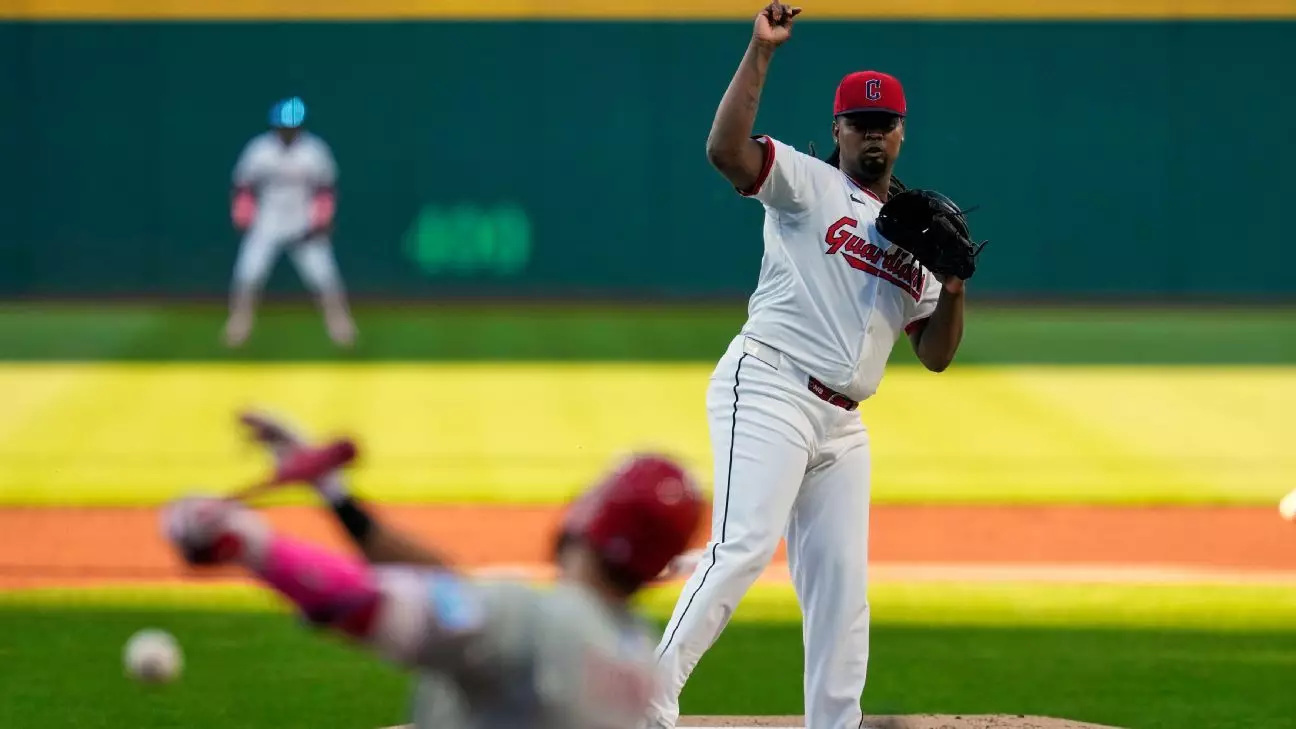Major League Baseball finds itself once again confronting the murky waters of gambling and integrity, a challenge that threatens to undermine the very foundation of the sport. The recent investigation into Cleveland Guardians pitcher Luis Ortiz illuminates a critical issue: how gambling, especially microbets on seemingly insignificant events like the outcome of a first pitch, can cast doubt over the authenticity of the game itself. This case is not isolated but part of a disturbing pattern that exposes the vulnerabilities in maintaining a fair and transparent league. When a player’s actions—or even perceived actions—become entangled with illicit betting, it not only jeopardizes the reputation of individual athletes but endangers the credibility of the entire sport.
The timing of this investigation is particularly problematic. It arrives amidst a broader societal context that is increasingly saturated with sports betting, often promoted as harmless entertainment. Yet, beneath this veneer lies a dangerous undercurrent: the potential for manipulation, corruption, and erosion of trust. MLB’s handling of the Ortiz matter demonstrates how fragile this trust can be, especially when investigations are shrouded in confidentiality and influenced by the complex interplay of league policies, player rights, and gambling interests. The fact that Ortiz’s leave follows a negotiated agreement hints at a league more eager to protect its image than to confront the root issues transparently.
The Cultural Shift Toward Normalizing Microbets
The proliferation of microbetting—tiny wagers on specific game events—represents a seismic shift in how sports gambling is perceived and practiced. While some argue it adds excitement, it also normalizes betting on the smallest facets of the game, such as the outcome of a first pitch. This normalization has dangerous implications for integrity. When wagers are placed on highly subjective, low-stakes events, the environment becomes fertile ground for misconduct or even manipulation. Relaxed attitudes toward such bets, driven by technological advances and aggressive marketing strategies, threaten to blur the lines between entertainment and corruption.
More concerning is how leagues like MLB are navigating these waters. By allowing betting-related activities and investigations to remain behind closed doors, the league risks normalizing a culture where the line between genuine competition and gambling-induced manipulation is dangerously thin. Ortiz’s case exposes the league’s reactive approach rather than a proactive stance on safeguarding the integrity of the game. Instead of fostering an environment of transparency and accountability, it appears more concerned with damage control, which ultimately diminishes public confidence.
The Broader Impact on Players and the League’s Credibility
Luis Ortiz’s suspension, occurring just after a period of poor performance and amidst a declining team trajectory, highlights the precarious position of players caught in these investigations. For athletes, especially younger players like Ortiz, the shadow of suspicion can be careers in limbo, impacting their mental health, reputation, and future opportunities. The league’s decision to place Ortiz on paid leave—pending further investigation—reflects a cautious but potentially superficial attempt at damage control. Such measures, if not accompanied by transparent and decisive action, risk fostering a culture of suspicion and fear among players who may feel scrutinized for simply participating in a burgeoning industry of legalized betting.
From a broader perspective, the league’s handling of this case underscores the delicate balance it must strike as it grapples with modern gambling pressures. In its quest to modernize and appeal to a wider audience, MLB risks surrendering the integrity that made baseball America’s pastime. If high-profile cases like Ortiz’s are perceived as cover-ups or knee-jerk reactions, public trust will erode, and the sport’s storied reputation will suffer. This is a pivotal moment for the league to demonstrate leadership—by establishing clear, enforceable policies and consistent enforcement—to protect not just the game but its soul.
By critically examining the entire landscape, it becomes clear that the intersection of gambling and professional sports is not simply a legal or regulatory issue but a profound cultural challenge. It demands a strategic reevaluation of how leagues, teams, and players approach integrity, transparency, and accountability. Without bold action, the sport risks becoming another arena marred by suspicion and scandal—where the thrill of the game is overshadowed by the dark influence of gambling interests.


Leave a Reply